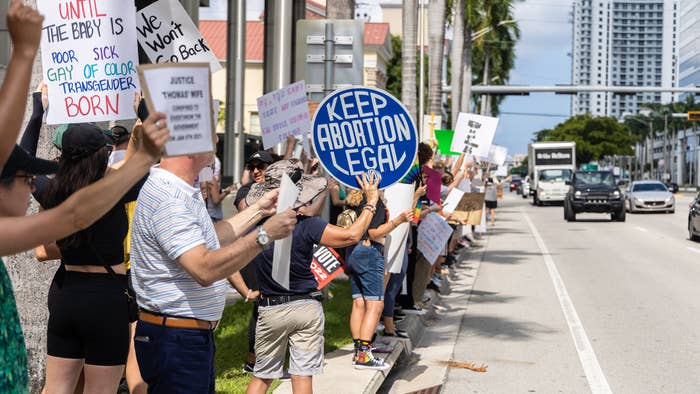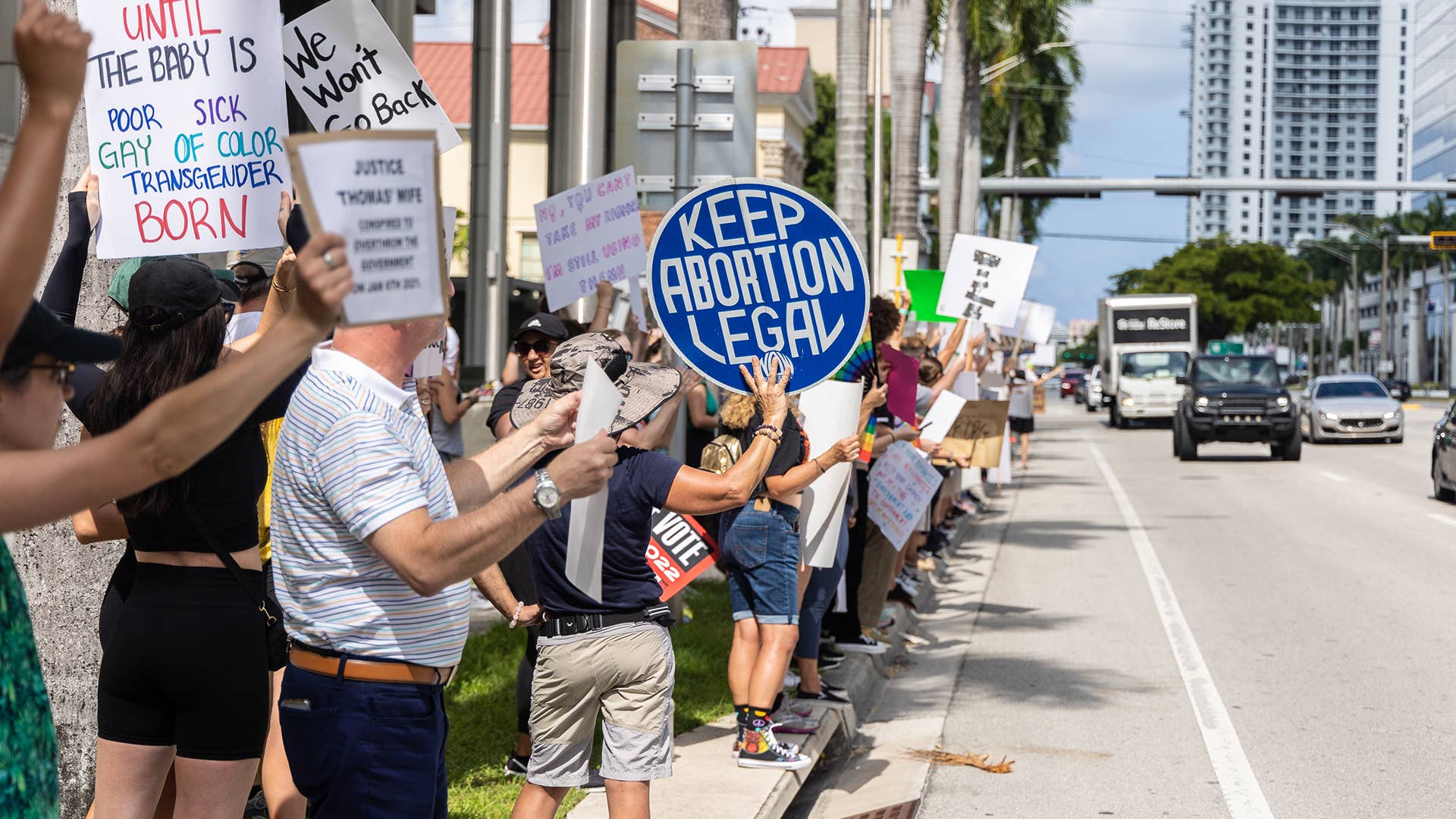
Florida governor Ron DeSantis has signed a bill on that bans abortions after six weeks and requires victims of incest and rape to provide proof for exception from the ban.
The Republican governor signed the Heartbeat Protection Act into law on Thursday, as announced in a press release. The six-week abortion ban won’t go into effect until Florida’s Supreme Court overturns its previous laws on abortion, but it will make the state one of the most restrictive in regard to abortion access. Victims of rape, human trafficking, and incest can only terminate their pregnancy if they provide proof their pregnancy was the result of one of the three. Accepted documentation includes restraining orders, police reports, or medical evidence.
The Heartbeat Protection Act arrives a year after Florida introduced a bill banning abortions after 15 weeks following the overturning of Roe v. Wade last year. “We are proud to support life and family in the state of Florida,” said Governor Ron DeSantis, who signed Florida’s controversial anti-LGBTQ+ ‘Don’t Say Gay’ bill into law in March 2022. “I applaud the Legislature for passing the Heartbeat Protection Act that expands pro-life protections and provides additional resources for young mothers and families.” The press release also criticized New York and California, in particular, for providing residents with safe access to abortion services.
In a statement issued late on Thursday, White House press secretary Karine Jean-Pierre condemned the legislation. “This ban would prevent four million Florida women of reproductive age from accessing abortion care after six weeks — before many women even know they’re pregnant,” said Jean-Pierre. “This ban would also impact the nearly 15 million women of reproductive age who live in abortion-banning states throughout the South, many of whom have previously relied on travel to Florida as an option to access care.”
A University of North Florida-conducted poll in February found that three-quarters of Florida’s population is opposed to the six-week ban.

